Explore the Best AI Image Gallery

Blockchain in Finance: Empowering the Creative Industry
The intersection of finance and creativity is a fertile ground for innovation. While traditionally these domains operated separately, emerging technologies like blockchain are blurring the lines, creating exciting new possibilities for artists, creators, and businesses alike. This blog post explores how blockchain technology is revolutionizing the creative industry, empowering individuals and fostering a more transparent and equitable ecosystem.
The Potential of Blockchain in Creative Finance
Blockchains inherent characteristics – immutability, transparency, and decentralization – offer a unique set of benefits for the creative industry:
- Copyright Protection and Ownership: Blockchain can create tamper-proof records of ownership for creative works, ensuring artists receive proper attribution and compensation. Smart contracts can automate royalty payments, eliminating intermediaries and streamlining the process.
- Direct Fan Funding and Patronage: Platforms built on blockchain enable creators to directly connect with their fans and solicit funding for projects without relying on traditional gatekeepers like publishers or record labels.
- Fractional Ownership of Art and Collectibles: Blockchain allows for the tokenization of art, making it divisible and accessible to a wider audience. This opens up new avenues for investment and ownership in high-value artworks.
Applications Across Creative Sectors
The impact of blockchain extends across diverse creative sectors:
- Music: Musicians can leverage blockchain to distribute their music directly to fans, control streaming rights, and receive fair compensation for each play. Platforms like Audius and Ujo Music are pioneering this space.
- Visual Arts: Artists can use NFTs (non-fungible tokens) to represent ownership of digital or physical artworks, enabling verifiable provenance and facilitating secure transactions on platforms like OpenSea and SuperRare.
- Gaming: Blockchain technology is transforming gaming by creating immersive experiences with in-game assets that players truly own. Decentralized games built on platforms like Ethereum offer new levels of player agency and control.
Ethical Considerations and Future Trends
While the potential of blockchain in creative finance is vast, its crucial to address ethical considerations:
- Accessibility and Inclusivity: Efforts should be made to ensure that blockchain technology empowers creators from all backgrounds and socioeconomic levels. Education and resources are essential to bridge the digital divide.
- Environmental Impact: The energy consumption of certain blockchain networks is a concern. Exploring more sustainable solutions, like Proof-of-Stake consensus mechanisms, is crucial for responsible development.
- Data Privacy and Security: Blockchain platforms must prioritize user data privacy and implement robust security measures to protect against breaches and unauthorized access.
Looking ahead, the future of blockchain in creative finance promises exciting advancements:
- Interoperability:** Seamless integration between different blockchain platforms will enable a more unified and interconnected creative ecosystem.
- AI Integration: Artificial intelligence can be leveraged to enhance blockchain applications in areas like copyright management, content creation, and personalized experiences for creators and fans.
- Decentralized Finance (DeFi):** Blockchain-based financial tools will empower creators to access funding, manage their finances, and participate in a more open and transparent financial system.
Conclusion
Blockchain technology is poised to revolutionize the creative industry by empowering artists, fostering transparency, and enabling new forms of collaboration and ownership. As this transformative technology continues to evolve, it will undoubtedly shape the future of creativity and redefine the relationship between creators and their audiences.
](https://images.ai-img.art/thumbnails/150/8884a7a8953b23d6c882f33524c10e09d320bbce4f305f2c7e79c402d82c1760.webp)

](https://images.ai-img.art/thumbnails/150/f9928aee79da6b2028ac7a7129ac30e6475a85d5300661776fde267c2da839ab.webp)
](https://images.ai-img.art/thumbnails/150/16ec42833d204af37c75cc776a794c54661cbfe1061c899680a4976a7f74cd51.webp)
](https://images.ai-img.art/thumbnails/150/c04f7210bb9d35279503ff64ad44a9826d6909838f777fb1edd0fdece2ac7c70.webp)



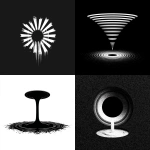

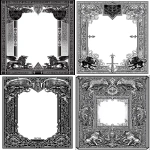
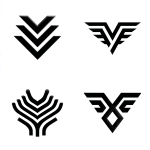

](https://images.ai-img.art/thumbnails/150/9ad2f4d771346182f4c9b6d1712edfd0b6b776f37b75dac606a8e03b1bd2dc47.webp)
](https://images.ai-img.art/thumbnails/150/f1cbba604c7411267acd95acaa4746a5ee006a25ade5e596a9501884b384e1dd.webp)
](https://images.ai-img.art/thumbnails/150/4d725f4d5380eb583bdebf0aad4c789acd6782398b4050f01f350a939dd4c2af.webp)
](https://images.ai-img.art/thumbnails/150/5b3fca49762c8c532ff70f250ca3b5900bac75be98d6c82f8f7a220465ad534a.webp)


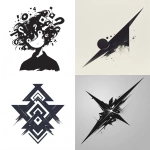



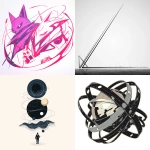



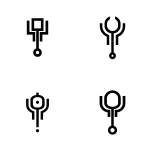

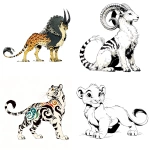

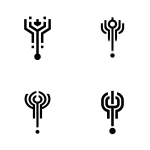

](https://images.ai-img.art/thumbnails/150/bbf691f1c69e4801062c68d0435463c5bf76258e3984fbe3cc25e9e46174cf88.webp)


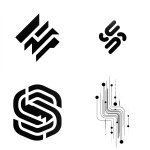


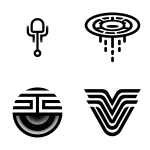
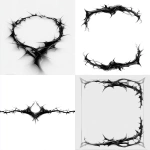
](https://images.ai-img.art/thumbnails/150/03de477e462377e62b34fea23ab1cbf6d4557f4077cc8bed9f23388af1200721.webp)
](https://images.ai-img.art/thumbnails/150/78a1311461ccc4b60dd1430d56ee04b3b5612a3145aef0a32196168d5489fdf3.webp)


](https://images.ai-img.art/thumbnails/150/55e9c8ac48f7ca1311ec4a843e2616aa87c73e2217901ac138d198afb0b4f1db.webp)
](https://images.ai-img.art/thumbnails/150/45d068cbdc39002eccc21e2169438a3c142426219fda8c9e027c536cdf66811e.webp)
](https://images.ai-img.art/thumbnails/150/89d86a1c20e8844b6d4ce23cf0e6ae10c19923617b6be16cac5d3cc513bf9c4e.webp)
](https://images.ai-img.art/thumbnails/150/cc8f7b8338e849e1e11a902ac51eda96c8f710e5d829c5b4d57b56fa05d28e95.webp)
